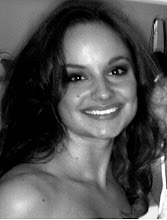I'm settling in for another studying marathon, but thought I'd share an interesting topic that's buzzing on the web today, first. After all, I'm trying to enjoy my breakfast and the Parol Evidence Rule tends to ruin my appetite. So here we go:
Click here for an article in the NY Times about a proposed bill that would, in my opinion, be the most direct route to mistrust of the patent office - in the eyes of consumers, small time inventors or companies that just aren't as big as the pharmaceutical giants.
A quick background (in English): The main issues in regards to validity are whether the invention is "novel", useful, and "non obvious".
A patent is not novel if it has been already been invented, whether or not that previous invention was patented, or "if all the elements of the patent, or their equivalents are found" within a single description or incarnation of a previous invention. Kiva Corp. v. Baker Oil Tools, Inc., 412 F.2d 546, 552 (5th Cir. 1969). So basically, if I want to patent a type of button making machine, I can't if someone has already made that machine before or if someone has invented a larger machine that includes the same button making machine. Capisce?
Non obvious means that an invention "must not have been obvious to one with ordinary skill in the art to which the subject matter of the invention pertains at the time of the invention and in the light of the teachings of the prior art." I know, I promised English. This just means that if you are in the button making machine business, you can't take two patents that pertain to button making machines and put them together in order to patent them.
The person looking to get a patent on his or her invention has a duty to disclose all "prior art" - basically any prior invention that has elements of the new invention. But sometimes that doesn't happen...
One last patent vocabulary lesson: Inequitable conduct. Inequitable conduct is established when the inventor doesn't share all of that prior art and “(1) the omitted…information [is] material to patentability of the invention; (2) the applicant [knew] of the existence and materiality of the information; and (3) the applicant intend[s] to deceive the United States Patent and Trademark Office.” That is a big no-no. Any patent acquired through the inequitable conduct is unenforceable... unless the bill goes through.
My mind is running absolutely wild thinking of the repercussions of this bill. The article does a great job of confirming that I'm not alone. Read it.
Okay, time for another 12 hour day of studying.... my breakfast is gone, my music is off.... life just got more lame.
Subscribe to:
Post Comments (Atom)






No comments:
Post a Comment